A large animal, likely a boar, that hung around our tent at dawn was gone by sunrise, leaving the grove in perfect stillness. In the cedars’ generous shade and at a 2,000-meter elevation, which was the highest we’d reached on this trip, the morning was cool. With a dose of reluctance, we packed and started our descent.
This time we took another route back to El Arz through the cedar reserve. Not only was it easier, but it also presented us with the opportunity to explore more of the forest and see parts we had missed yesterday. Hidden amid the trees, we spotted a proto-Christian chapel and other manmade structures, as well as several reliefs on dead trunks that depicted subjects like human faces, a woman’s back, and Mary.
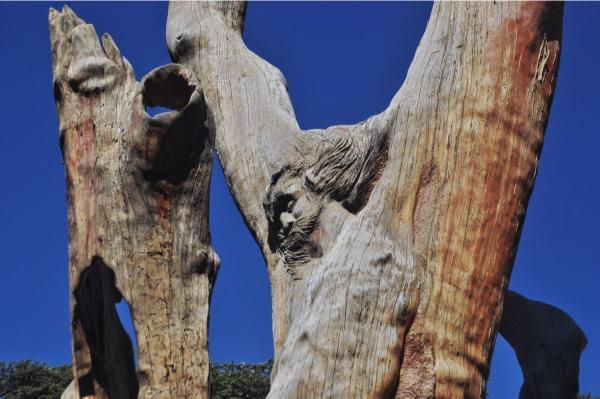
Past the village, we got on a dirt road heading west and down into the valley. Sophie made a delightful discovery when we stopped at a spring. Turning around after I filled my bottle, I saw her face beaming with affection and her raised palm cupping a teeny newborn creature.
It was blind and bald, barely capable of crawling, its inchoate feet and underside a tender pink. I took it for a ferret at first, but subsequent investigation revealed it was a baby squirrel. It was alone in the sun beside the spring, looking so vulnerable and forlorn. We trickled some water on it to cool it down and placed it in the shade near its original position, hoping its mom would return with food and that the myth of her not recognizing her offspring if contaminated by human odor is indeed a myth.
This story is an excerpt from my book "Backpacking Lebanon", wherein I recount my one-month journey around this fascinating country. Check it out if you like what you're reading.
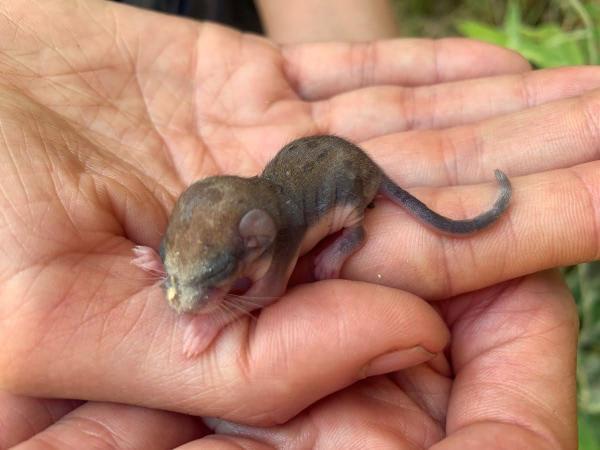
We then found ourselves on the edge of a cliff overlooking a tight cluster of red-roofed, white houses perched on the edge of the next cliff. It was Bsharri, the principal town in the Qadisha Valley. Following a loose, steep path, we arrived at its center.
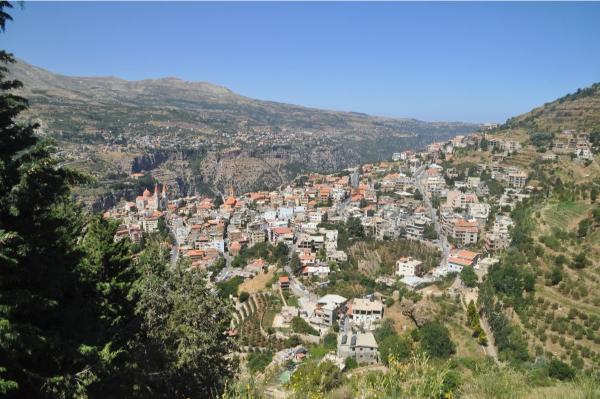
While we loitered outside one of the town’s many splendid churches, an African woman approached us. She was from Cameroon and worked as a maid in a house beside the church. She invited us to her boss’s for a coffee.
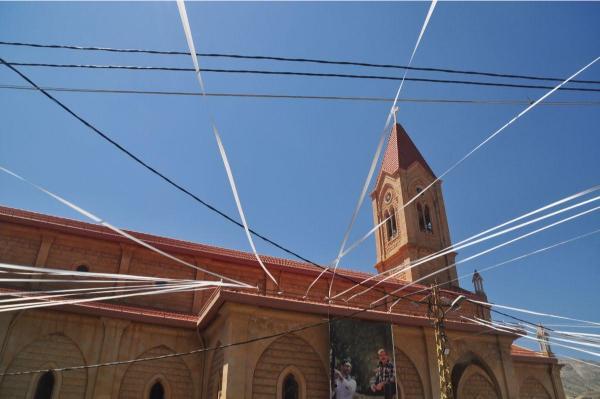
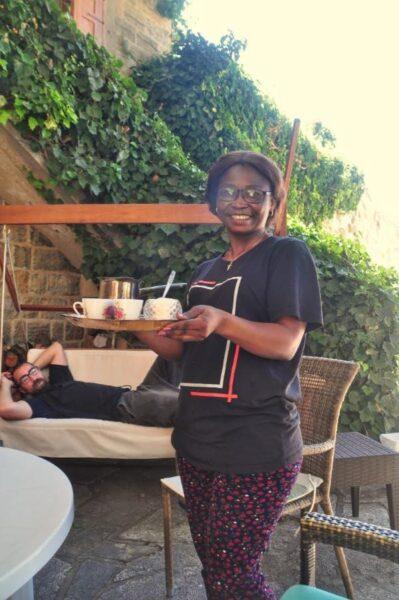
Past a solid iron gate, we entered a broad cobbled yard bestrewn with trees and flower pots. The open south side faced the town cathedral and the mountains in the background. The other sides bordered two stately stone houses and a couple of outbuildings.
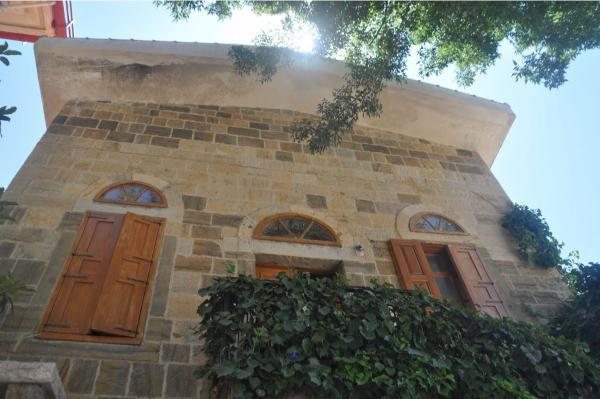
Her boss was a bearded man in his thirties. She woke him up with news of our visit, and he emerged from the door of the newer house, pajamaed and sleep-eyed, to shuffle his way across the garden and sprawl on a swing couch. While he remained there clearing the morning haze, she gave us a tour of the older house. It was grand in both size and appearance. The ceiling was so high that fixed ladders accessed upper shelves. The antique furniture, carpets, and artworks must have been worth a fortune.
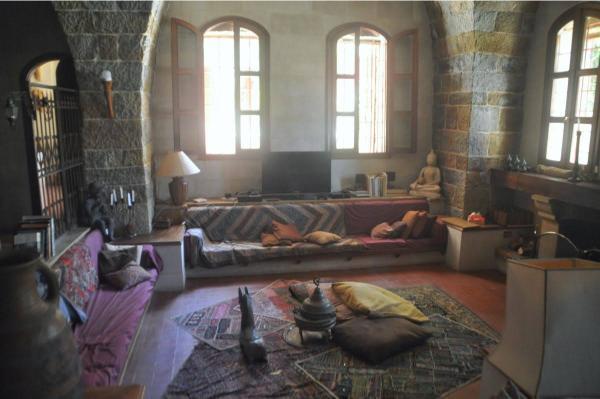
Then we sat outside and had our coffee together with the boss. He insisted we keep a distance because he was ill and didn’t want to infect us, but I suspected he was paranoid about being infected himself with Covid or whatever. He was the scion of a 600-year lineage of a noble local family, inheritor of this 350-year-old property where he dwelled alone with the maid.
We spoke a lot about various topics such as Lebanon, Israel, Hezbollah, Islam, and above all the local water conflict—I just then realized Bsharri was the one side of the confrontation we’d been hearing about all this time; the sniper was from the other side. He was resolutely unfond of Muslims and claimed he and his fellow townsmen were getting ready for a survival battle. He was a nice and knowledgeable dude, but a bit overly conspiratorial and pessimistic. We finished our coffee, let him get ready for his friend’s dad’s funeral where he’d rather not go but had to, and resumed our way.
After stopping at a cozy cafe for lunch and at the grocer’s for provisions, we left Bsharri and took the trail down the cliff and into the gorge. The view was breathtaking. What from far above had looked like a thin crack on the valley’s surface turned out a tremendous canyon on the inside. Towns, villages, lakes, mountain ranges… all the wide scenery that had dominated our view over the past two days vanished in an instant as we descended into a new, cloistered world. A cliffside monastery—one of several founded centuries ago in Qadisha Valley to become one of the world’s oldest Christian monastic communities—was the only hint of human activity in sight. As for the rest, there was nothing but rock, woods, and sky.
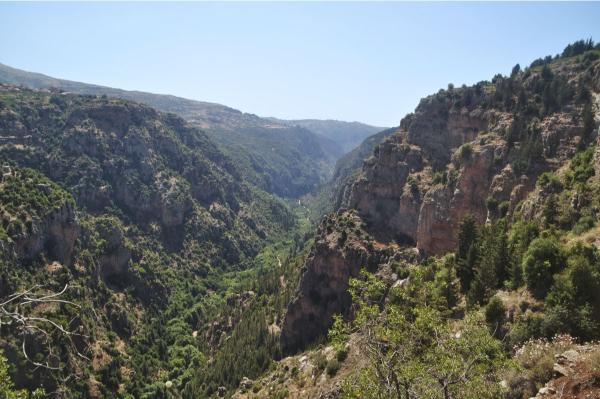
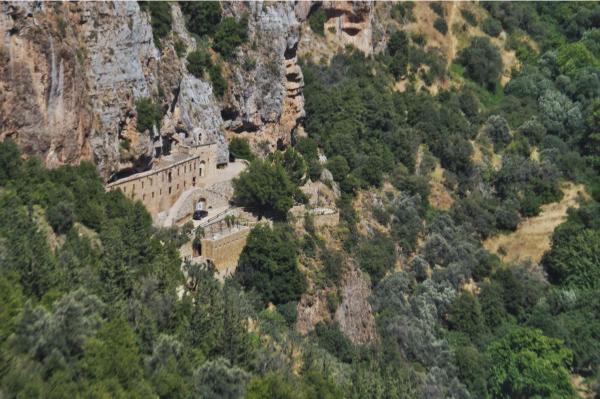
The sky all but disappeared behind the green orgy that deluged the gorge bottom. Unseen by sunlight, a swollen river and a sketchy dirt road ran parallel through it. Pleased with the shade, we followed the latter. A couple of pickup trucks loaded with tourists were the only vehicles we encountered. And a desolate restaurant maintained by a father-and-son pair, where we sat at a table covered with a week’s worth of fallen leaves for a lemonade, was the only structure.
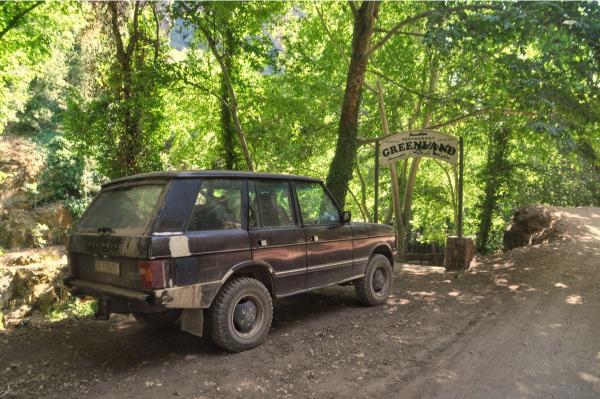
A little further, we located an ideal clearing by the riverside and pitched our tent. Aside from a passing fox couple, who paused to briefly regard us in puzzlement, and a swarm of mosquitoes that ceaselessly raided us in defiance of multiple repellent coils, we had the place to ourselves and enjoyed the serenity until the nightfall put us to sleep.
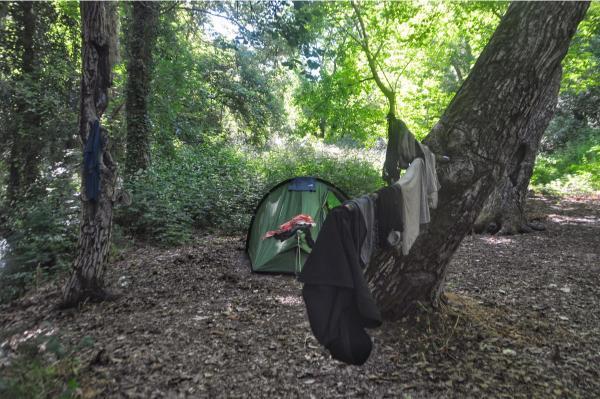
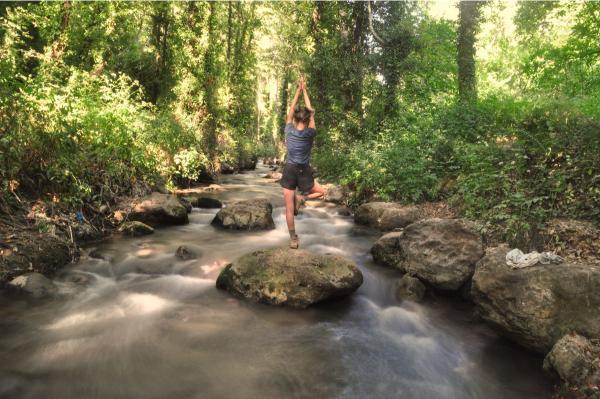
Photos
View (and if you want use) all my photographs from Bsharri and the Qadisha Valley.
Accommodation and Activities in Lebanon
Affiliation disclosure: By purchasing goods or services via the links contained in this post, I may be earning a small commission from the seller's profit, without you being charged any extra penny. You will be thus greatly helping me to maintain and keep enriching this website. Thanks!
Stay22 is a handy tool that lets you search for and compare stays and experiences across multiple platforms on the same neat, interactive map. Hover over the listings to see the details. Click on the top-right settings icon to adjust your preferences; switch between hotels, experiences, or restaurants; and activate clever map overlays displaying information like transit lines or concentrations of sights. Click on the Show List button for the listings to appear in a list format. Booking via this map, I will be earning a small cut of the platform's profit without you being charged any extra penny. You will be thus greatly helping me to maintain and keep enriching this website. Thanks!
